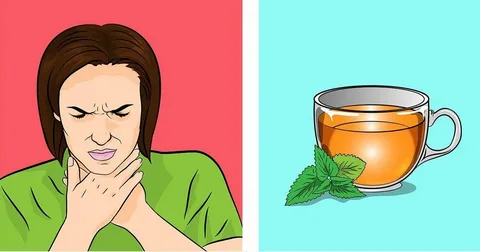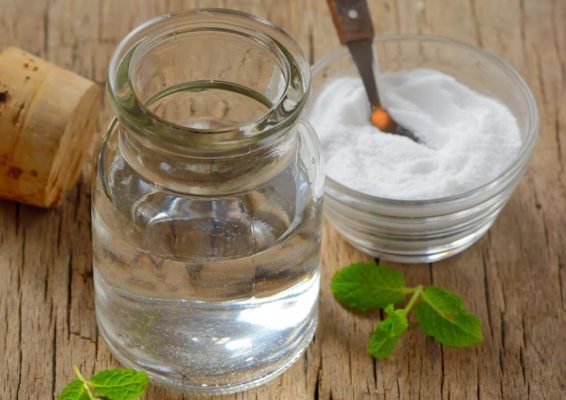Is Sore Throat a Symptom of COVID-19?
Learn More: Is Sore Throat a Symptom of COVID-19?
Table of contents
Despite the fact that COVID-19 is a deadly disease, some people do not experience sore throat symptoms. In fact, a recent study showed that only 14% of COVID-19 patients reported sore throat symptoms. In addition, many COVID-19 patients experience fatigue and a dry cough. Some patients also experience shortness of breath. Fortunately, treatment options are available.
If you are concerned about getting COVID-19, you can take a test. There are several online tests that provide quick results. Depending on your insurance, some tests may not be covered. If you do test positive, you can follow the Centers for Disease Control’s guidelines.
If you have a sore throat that lasts more than a week, contact your doctor. Depending on the severity, you may need to get an antibiotic to prevent post-recovery complications. If you suspect that you have COVID-19, you should stay home from school and work for at least 14 days.
During this time, you should drink plenty of water and use over-the-counter (OTC) medications to treat your body aches and sinus problems.
You can also use a face mask, which will not cause your sore throat to get worse. However, if you have allergies or are allergic to certain chemicals, you may want to avoid wearing masks.If you do have COVID-19, your sore throat may not last very long.
In fact, most COVID-19 sore throats last less than five days.COVID-19 is a viral infection that can cause a variety of symptoms. Some of these symptoms include fever, shortness of breath, loss of smell, coughing and more. It can also cause swollen lymph nodes.
What is Sore Throat?

Almost everyone gets a sore throat at some point in their lives. But if you are having chronic sore throats, or sore throats that last more than a week, you may be having a serious condition.
When you have a sore throat, you might be experiencing pain in your throat, and swelling of your lymph nodes. You may also have a fever and difficulty swallowing. These are all signs of a bacterial or viral infection.
Causes of Sore Throats
Whether you have a simple sore throat or a more serious one, knowing the causes of sore throats will help you know when you need to seek medical attention. A few of the most common causes of sore throats include;
- Bacteria
- Viruses
- Allergies
Antibiotics are prescribed to treat bacterial infections. However, most antibiotics do not cure viral infections. In addition, antibiotics can cause antibiotic resistance. Antibiotics may also cause unwanted side effects.
Most sore throats are caused by viruses. If your sore throat is caused by a virus, the symptoms will usually clear up within a week. Symptoms may include fever, cough, and sore throat. However, there are some cases where the symptoms last for several days. If you have these symptoms, see a doctor right away.

Infections, such as strep throat, are also common causes of sore throat. These infections can cause scarlet fever if left untreated. The symptoms include a fever, sore throat, headache, and swollen glands.
Other causes of sore throat include allergies, asthma, and rheumatoid arthritis. In some cases, a sore throat is associated with epiglottitis, a condition in which the airway is blocked.
Allergies can cause an itchy throat, so controlling the allergic response is a good strategy for treatment. Antihistamines can help control the symptoms. You may also need to take other allergy medications.
Tobacco products can also cause sore throats. If your child has asthma, you may want to keep the smoke out of the home. You may also want to use a humidifier at night.
What Liquors Are Best For a Sore Throat?
Having a sore throat is a common ailment during the winter months. Fortunately, there are a number of beverages that can help you to ease the pain and irritation of your sore throat. These beverages will keep your throat moist and help your body to fight the infection.
One of the best beverages for a sore throat is a warm cup of herbal tea. This type of drink will help to soothe your throat, and it also has anti-inflammatory properties. Another drink is hot water with lemon and honey. This drink will also provide you with a dose of Vitamin C.

Another great beverage for a sore throat is oatmeal. Oatmeal contains anti-inflammatory properties, as well as zinc and magnesium, which are essential for your immune system. Adding honey and cinnamon to your oatmeal will also add to its flavor and soothing effects.
Another popular drink for sore throats is hot soup. This is particularly effective if you suffer from congestion, since the warm soup will help to decongest your nasal passages. Adding a splash of lemon juice will help to break up mucus, and lemons are full of Vitamin C.
Another way to soothe a sore throat is to gargle with warm water. Gargling is not only effective in loosening mucus, but it also helps to flush out irritants. If you cannot gargle, you can also spit out the water.
You can also drink smoothies filled with antioxidant-rich fruits and vegetables. These drinks will provide your body with the nutrients it needs to fight the infection and to heal.
Sore Throat Home Remedies
It can be annoying and irritating to have a sore throat. It frequently results from a bacterial or viral illness, but it can also be brought on by environmental factors like dry air or allergies. Fortunately, there are a number of natural therapies that can ease the discomfort caused by a sore throat.
Saltwater Gargle

A straightforward yet efficient method to relieve a sore throat is to gargle with salt water. Saltwater can assist to clear up swelling and eliminate throat microorganisms.
Gargle for 30 seconds with a saltwater solution you’ve made by adding 1/4 to 1/2 teaspoon of salt to a glass of warm water.
Honey and Lemon

Natural remedies that can ease a sore throat include honey and lemon. Lemon supplies vitamin C and can also aid to reduce inflammation, while honey has antimicrobial qualities and can help coat the throat. Drink a cup of warm water with one tablespoon of honey and one tablespoon of lemon juice.
Marshmallow Root

For millennia, people have used marshmallow root to relieve sore throats. It has mucilage in it that can cover and shield the neck. One spoonful of dried marshmallow root should be steeped in a cup of boiling water for 10 to 15 minutes to prepare marshmallow root tea. While it’s still warm, sip it.
Peppermint Tea

Another all-natural treatment for a sore throat is peppermint tea. Menthol, which is present in peppermint, can numb and soothe the throat. One tablespoon of dried peppermint leaves should be steeped in a cup of boiling water for 10 to 15 minutes to produce peppermint tea. While it’s still warm, sip it.
Apple Cider Vinegar

A sore throat-causing bacteria can be killed with the use of apple cider vinegar’s antibacterial capabilities. Drink a cup of warm water with one spoonful of apple cider vinegar and one tablespoon of honey.
Final Thought
While sore throat symptoms may not always be present in COVID-19 patients, exhaustion, a dry cough, and shortness of breath are frequently experienced. The most frequent causes of sore throats are bacterial and viral illnesses, and antibiotics are used to treat bacterial infections.
Some liquids that can ease a sore throat include herbal tea, hot water with lemon and honey, oatmeal, and hot soup. In addition, home remedies for a sore throat include a saltwater gargle and smoothies made from fruits and vegetables high in antioxidants.
You May Want To Browse
Is Diarrhea a Symptom of COVID?
What Are Asthmatic Bronchitis Symptoms?
In addition, click here for information from the official website of the World Health Organization.
FAQ
Yes, the coronavirus can cause a sore throat as a symptom (COVID-19). However, there are numerous other potential reasons of a painful throat, so having a sore throat alone does not imply that you have COVID-19.
You can do a number of things to assist sooth a painful throat, such as:
· using warm salt water to gargle
· consuming warm drinks, such as honey-infused tea
· using throat sprays or lozenges
· avoiding irritants like smoking and contaminated air
· getting lots of rest and drinking plenty of water
A sore throat can be brought on by a number of conditions, such as allergies, dry air, irritants like smoking or pollution, viral or bacterial infections (such as the common cold or strep throat).
Depending on the source, a sore throat’s duration can change. When a viral infection is to blame, it normally lasts for a few days to a week.
It is advised that you get tested for COVID-19 if you also have a sore throat and other COVID-19 symptoms, such as a fever, cough, or loss of taste or smell. If you have had frequent contact with someone who has tested positive for COVID-19, it is also vital to get tested.
Although the initial signs of COVID-19 might differ from person to person, some of the most typical early signs include:
· Cold or fever
· Cough
· Fatigue
· Body or muscle aches
· Headache





